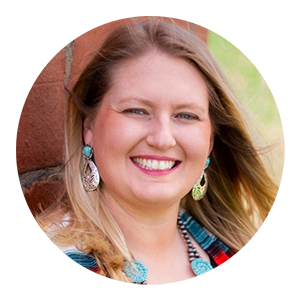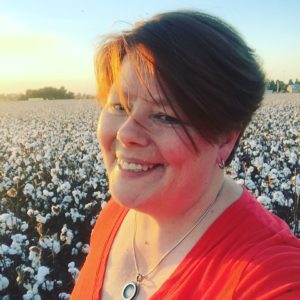Janice Person:
Welcome to Ag Over Easy, the podcast from Channel where you get your breakfast with a side of agronomic insight. I'm your host, Janice Person, and today we're talking fried eggs and farming families. Why? Because running a farm with your family is kind of like frying an egg. At the center, they're both golden and rewarding, but let's be honest, sometimes things can get a little scrambled too. Fourth generation farmer, Jacquelyne Leffler, is joining us today from America's Kansas. Jacquelyne runs Leffler Prime Performance, where she raises beef and simultaneously coaches, athletes. She's also a proud partner at Leffler Farms Eat with her sister, Natalie, and her parents, Phil and Cindy.
Janice Person:
So let's dig in and learn a bit about her work and family dynamics. So Jacquelyne, I got to ask, talking about fried eggs, scrambled eggs, where do you fit in the wonderful world of eggs?
Jacquelyne Leffler:
I really prefer scrambled eggs, but as long as there's some cheese on any type of egg, I'll pretty much eat it.
Janice Person:
I love it. I love it. That sounds perfect. Growing up in your household, your family, is breakfast an important meal?
Jacquelyne Leffler:
Yeah, it kind of seemed like Sunday morning was always our main, big breakfast, but we were more of a breakfast for dinner kind of family because that's when it seemed like we all finally got at the same table and on the same page for the day and my dad is the king of French toast and so that was always the best days when we got that, and usually it was on a Sunday or some evening during the week.
Janice Person:
I love breakfast for dinner. You said when you finally get to the table together, is that because you are all going different directions with farming and school and all those kinds of things? What's it like being with your family and working with your family?
Jacquelyne Leffler:
Yeah. So my sister, Natalie, and I are seven years apart. And so during school years, we were always kind of on two different pages, doing two separate things and different activities and whatnot because of our age difference. And then my dad was always just the typical farmer and rancher, just worked all sorts of hours to get everything done. And then my mom works in town as a cosmetologist. And so between the four of us, we seemed like we were in four different directions all the time, but we always ended up at the dinner table together.
Janice Person:
So what are some of the ways that the farm has changed over the last few years? How long have you been back farming with your family as a full time farmer?
Jacquelyne Leffler:
So I graduated Kansas State University in 2013 and I came home that spring and that's kind of when I decided I was going to be on the farm. I kind of just used the local farm house that we had here and told my dad I was going to use it as a storage unit when I looked for a job, and somehow that job became the farm and I haven't left yet. And so that storage unit is now my personal home that I'm sitting in right now and So it worked out pretty well. It's not what anybody expected. My dad wasn't super excited about me coming onto the farm, just because he knows how hard it is for each generation to keep it going with the growing input cost and regulations and all the things that we face on a yearly basis. But my grandpa was really excited to see me come back home and just kind of immerse me right in and let me tag along like I said.
Jacquelyne Leffler:
And we just had a great summer and my dad and grandpa sat me down and we figured out how we were going to be able to work together cohesively as a unit, as partners and not just family members. And so that's kind of how I came back to the farm and my main roles that I've taken on is technology. I'm a millennial, so I guess that's my role. And so I've implemented FieldView with Climate. Our channel seed dealer helped us get set up with that. And I've just been ecstatic about that program. I don't have the memory that my dad does and so it's super great to be able to pull out my phone or iPad wherever I am and be able to see anything and everything that we've done and/or are currently doing.
Janice Person:
I've seen farmers occasionally with the multigenerational farm like yours, where maybe grandpa kept his notes on what he planted where in a little notebook they'd keep in their pocket. And now you can pull out an iPad and have so much information at your kind of beck and call any moment. What do you think are some of the decisions that lets you make a better decision, having that information in real time?
Jacquelyne Leffler:
Well, for one, I still keep that notebook in the planter with me. Just in case anything happens, we still have it, but having that handy in the palm of my hand at all times, our cell phone has kind of become our own little personal world. I mean, it keeps anything and everything in there. And if my seeds man calls me up and wants to know what variety is where or how it's doing, I can send maps, I can generate maps for anything and everything.
Janice Person:
When I looked at your bio, it says you partner with your family on Leffler Farms Inc. And as somebody who is nice and young, how did you guys start that farm transition to where you're considered a partner? Or how did you work through that?
Jacquelyne Leffler:
Yeah, so it really just started with my grandparents. They were very proactive in making sure that there was a plan in place. And so they started estate planning early on. And so my dad is the only sibling that is on the farm, on Leffler Farms Incorporated. And so they made sure that we were set up as a subchapter-esque corporation. We were one of the first ones in Kansas to do that. And so they've taken a lot of steps to make sure that whether it be taxation purposes or whether it just be transitioning that we're in a position that can that and do that in a way that's effective and works for us. And so anytime that we've ever had some type of meeting with the lawyer, we make sure that all three generations are there, not only just for transparency, but because, one, different generations are going to hear things differently, and two, more views the better because you never know how someone's going to take something.
Jacquelyne Leffler:
And so we always make sure we go in with a list of questions because it's so easy to get into a room and then just blank. The attorney might say something and then you're just completely on a different path and you completely forget all the things that you were going to talk about. And so we always kind of go over a list of thing, but I think just transparency with all three generations has been the best thing for us and it's allowed us to have good communication. And even if we don't agree on certain things, there's still an open table to talk about it. And I think making sure that you're at a table where your voice can be heard is so important, and that's something that my family has really taken to heart.
Janice Person:
Yeah. I think that farm transition and the role that our elders can play in that is so important because as a young person approaching that topic of, "Hey grandpa, are you planning to retire anytime soon?" That can get a little bit emotional for you and for your elders, right?
Jacquelyne Leffler:
Yeah, absolutely. And we were really, I guess, fortunate in an odd way to say it of just circumstances and have it worked out, but my grandpa was the safest guy ever on the farm and was walking around his living room table and fell and broke his hip, that's what accelerated the process for him to go into an assisted living facility. But we had already had transitions in place. And so when that happened, it wasn't anything frantic, we got to do this or that, we were already set up and it was put into motion and he's still in a great position where he can come and drive around and watch us and he makes sure he does his morning phone call to my dad at 6:00 AM to make sure we're doing what we're supposed to be doing. And so I think that helps is making sure you have a plan in place prior to whatever situation you find yourself in and it really did allow it to be a lot smoother because we were set up and we had everything ready to go.
Janice Person:
I love it. So grandpa gets up in the morning and has breakfast and does his check ins, do they call you at 6:00 AM?
Jacquelyne Leffler:
They do not. I think he knows better.
Janice Person:
So Jacquelyne, we really haven't talked yet about your beef operation. Tell me what it is you guys are doing, what kind of cattle do you have?
Jacquelyne Leffler:
Yeah, so our operation is that we bring in cattle that are around 600 pounds. Usually we background them for, oh, it could be two months, it could be four weeks, just depending on what kind of calves they are and where they're coming from. And then we bring them home and feed them until they're roughly 800 to 900 pounds or if it's summertime, then they get to go and graze on the Flint Hills grass, which I'm pretty biased of, I think it's the best in the world. They get pretty good gains and it's just beautiful scenery. So that's by far been one of my favorite jobs that I've taken on. And then we take them out to a fat lot in Strong City, Kansas called Palenske Ranch, just 20 minutes away, and then once they're fattened up and ready to go, that's where my business, Leffler Prime Performance, really gets to shine and market all of our cattle direct to consumer.
Janice Person:
What would be one piece of advice you'd give to somebody else who's considering doing something consumer direct?
Jacquelyne Leffler:
Yeah, just dream big. I mean, you never know, the sky is the limit and that's kind of how I've approached life. I think everybody thought I was crazy in March when I said I took out 160 butcher slats, but we're sitting here almost in September and I'm a hundred percent sold out and I already have stuff booked in 2021. And so literally, I mean, your dream will never be too big and just always rely on your network and don't be afraid to ask people for help, whether it's just a Google Jot form that I had my friend at Kansas Soybean make for me or whether it was Megan Kramer at Kansas Farm Bureau, helping me on the social media side or my friend Mandy Andrews coming and taking photography of me so I could create a website. You have friends with all sorts of talents and they're more than willing to band together and be your tribe to make sure that you're successful.
Janice Person:
I think it's a business that a lot of farmers might want to consider because I think it's going to be a steady business going forward. Once people meet farmers like you and they know they're buying beef from you, I think a lot of folks are going to really trust that and want to come back and do repeat business.
Jacquelyne Leffler:
Yeah, and that's what it's all about is trust. If we can start with trust and their food system, then they're going to start to trust us with other things that they hear about on the news, whether it's the chemicals that we use, they're going to understand why we use them, because they're going to hear our story and not just different ads or crazy commercials they hear on the TV. And so I think really putting a face to the farming community and to agriculture really does connect them. But like you said, it brings a trust factor that I don't think can be shown any other way.
Janice Person:
Yeah. That's amazing. If you could look back and give yourself advice coming out of college or somebody who is newly coming out of college this year, not sure what they want to do, but are thinking about at least spending some time on the family farm, what kind of advice would you give them?
Jacquelyne Leffler:
If you're in Kansas, I would a hundred percent tell you to apply for Leadership KFB through Kansas Farm Bureau. That's a program that I was involved in my second year back on the farm. And I was still pretty unsure of if I was doing the right thing and coming home was the right thing, and I found a passion of agriculture that wasn't just my dad or my grandpa's I had, it became my own passion and it kind of lit a fire in me and I had wonderful staff members invest in me and mentor me and show me what it can be to really be passionate about agriculture and take that back to your home.
Janice Person:
I have to ask, since your dad wasn't necessarily really excited about you coming back to the farm, was that one of the factors that helped switch things for him, or were there some other things that you could say, this was kind of a proof point for my parents?
Jacquelyne Leffler:
Yeah. I think that the main proof point was that my dad, I think, really saw that my grandpa was slowing down and then my dad saw me starting to get into the equipment and start to do things and I was holding my own and I actually coached at Emporia State my first two years back on the farm as well. So I was putting in a lot of hours between coaching a division two college and being home on the farm full time. And so if you want to learn how to not make a lot of money, you coach collegiately and farm. And so I think my dad kind of saw like, "Hey, if she's willing to put in the hours and do the work and not make a whole lot of money the first couple years. I think she's in it for the long haul."
Jacquelyne Leffler:
And as for my mom, if you talk to her, the first thing she will tell you is she's as happy as she can be that both of her girls are back home. And you know, we're going to be living here probably the rest of our lives and getting to do life with them every day. So my mom has always been super pumped that my sister and I are here.
Janice Person:
When you think about legacy for your grandpa or your dad, what do you think their legacy with the farm is going to be?
Jacquelyne Leffler:
I think their legacy is already kind of there and being shown in our area. And that's just being progressive, not being scared to try new things, willing to fail if that means succeeding later on. We've always been super efficient with whatever we're trying to do, so sometimes people were buying up land, but instead my dad and grandpa were trying to make the land that we already own more efficient, whether that was putting nutrients in it or trimming hedgerows or making new waterways, they've always been super good to the land and super good stewards of the land. And I think that's a legacy that is so important, because there's only so much of it. And to me, they've done a tremendous job of just utilizing the land around us and making sure that they're getting every ounce of it that they've worked so hard for.
Janice Person:
Looking out 50 years down the road, what do you think your legacy is going to be? Do you think technology is a piece of that?
Jacquelyne Leffler:
Yeah, I think technology will definitely be there. We're one of the first ones in the area that did grid sampling. So a lot of people are just now getting into it and we've done it for 15 years. And so I think that's kind of given us that stepping stone to already be where a lot of people are trying to get to. And that's just because that legacy has been built on progressiveness. So 50 years from now, I can't even imagine where we're going to be. I think about all the things that my grandpa has seen throughout his life, what my dad has seen in his life and what I've seen in mine, it's hard to imagine what 50 more years could bring in agriculture. I really think it's just endless possibilities.
Janice Person:
I love it. It seems like your family has come up with a perfect recipe for success. And I think with that, we're going to wrap it up. Jacquelyne. Thanks so much for joining us on Ag Over Easy, the Channel podcast where you get breakfast with a side of agronomic insight.
Janice Person:
Working alongside family day in and day out isn't always easy, but Jacquelyn brought up some great bite-size advice on how to be successful. Remember, communication is key. As you work together toward a common goal, you may not always agree, but if you keep your eye on the bigger picture, you can continue to grow your family's legacy into something you can all be proud of and you'll still be able to sit down for an enjoyable breakfast together. Give Jacquelyne to follow on Twitter for more helpful insights about all things ag @jaxlef14, that's @jaxlef14. Be sure to subscribe to Ag Over Easy, wherever you listen to podcasts or at agovereasy.com.




